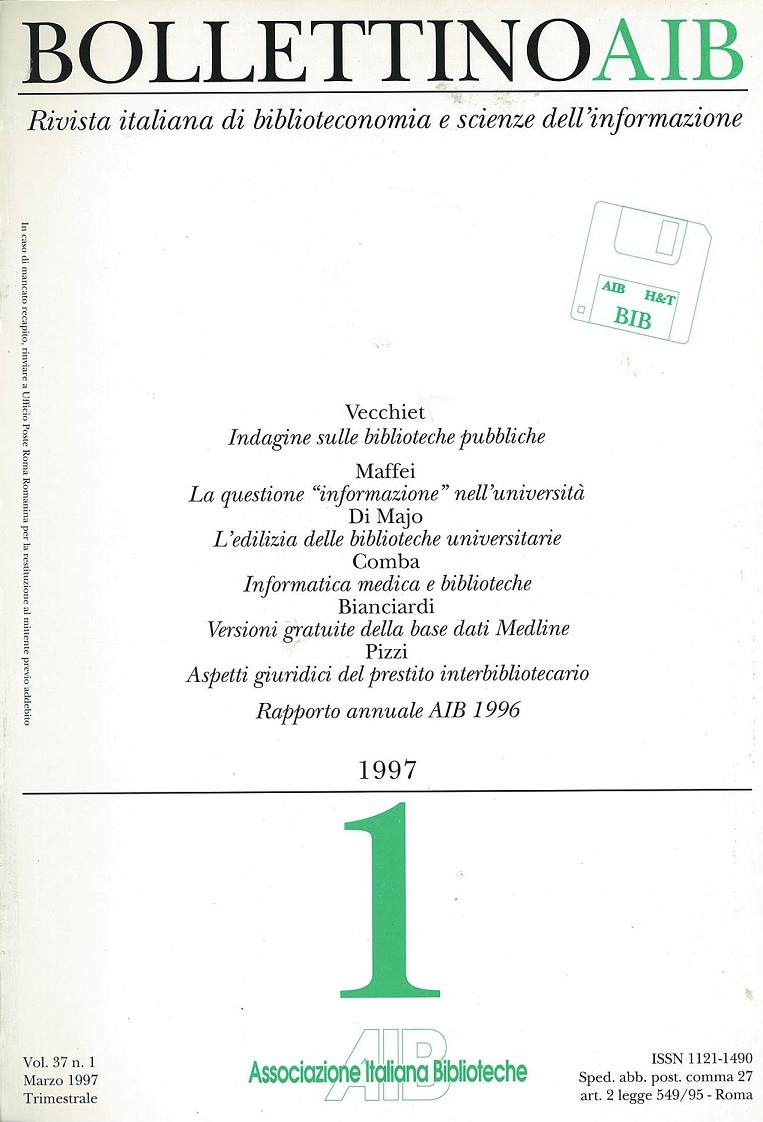University libraries buildings: notes for the near future
Main Article Content
Abstract
There are quite a few unanswered questions regarding the development of library buildings in the near future. A general rapid transition to the virtual library appears implausible, leaving libraries with the unenviable task of organising the cohabitation and integration of traditional tools, operations and uses with the opportunities offered by technological innovation.
Printed material continues to increase, albeit at a slower pace than in the past, and libraries continue to acquire it even though they have to simultaneously ensure the accessibility of other media. There has been a real increase in the number of remote users, but an equally real increase in local users who still see the library as the most appropriate place for individual and group study, research and reading. Although telecommuting is gradually gaining ground, the most pressing problem for libraries today is to re-examine the validity of the various internal work organisation models in the light of the transformations engendered by the IT revolution.
Architectural projects (for a new building or the adaptation of old premises) and the organisation of spaces for collections, users and staff should take account of this data and this greater complexity. Library premises are today called upon much more than in the past to guarantee a real functionality; attention to the public's needs, even the most diversified; greater attention to the workers' environmental conditions and the capacity to adapt to transformations.
These objectives are generally easier to achieve in a new building than in adapted, old or historical premises. Conversion, however, is an alternative which should not be rejected a priori: there are many valid reasons for choosing it and there are quite a few examples which prove its feasibility.
SANDRA DI MAJO, Biblioteca della Scuola normale superiore di Pisa, piazza dei Cavalieri 7, 56126 Pisa.Article Details

This work is licensed under a Creative Commons Attribution-ShareAlike 4.0 International License.
